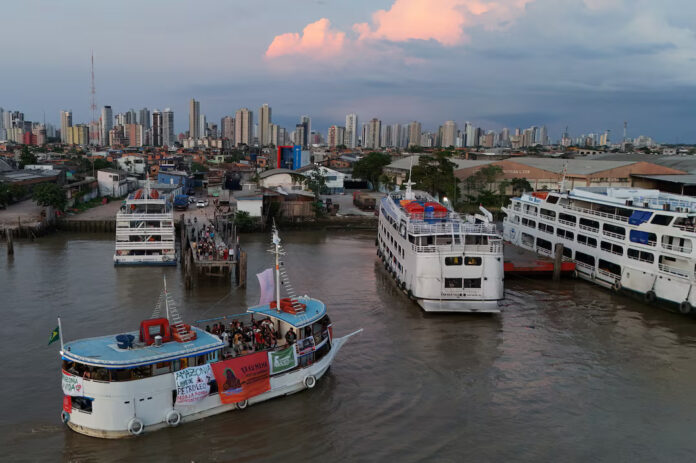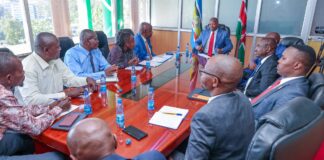
The Australian state of Victoria on Thursday made history by signing into law the country’s first treaty with Indigenous people, a landmark step toward reconciliation that grants First Nations communities greater involvement in decisions affecting their lives.
The treaty, set to take effect on December 12, includes a formal apology from the Victorian government for historical injustices committed against Indigenous Australians.
It also establishes a permanent representative body, the First Peoples’ Assembly, to advise the state on policies concerning health, housing, education, culture, and other matters impacting Indigenous communities.
“Today marks a new chapter in the story of our state,” Victorian Premier Jacinta Allan said during a signing ceremony in Melbourne. “When people have a real say over the things that impact their lives, their healthcare, housing, education, and the practice of their culture, their outcomes are improved and our state is made fairer.”
The treaty introduces three key institutions: the First Peoples’ Assembly, a truth-telling body to document and address historical injustices, and an accountability body to ensure the government meets its obligations under the agreement.
While the Assembly will not have veto powers, it will serve as a formal mechanism for ongoing consultation and advocacy.
Victoria’s move comes as Australia grapples with its troubled history of colonization and the persistent socio-economic gap between Indigenous and non-Indigenous citizens.
Despite making up nearly one million of Australia’s population, Indigenous Australians remain significantly disadvantaged in health, education, and income levels.
Unlike other former British colonies such as Canada, New Zealand, and the United States, Australia has never before signed a treaty with its Indigenous people.
Efforts to strengthen national reconciliation suffered a blow in 2023 when a referendum to enshrine an Indigenous advisory body in the constitution was rejected by 60% of voters and all six states.
Legal scholar Harry Hobbs from the University of New South Wales described Victoria’s treaty as a “major step” in recognizing Indigenous rights and self-determination. “It’s a moment that will influence treaty discussions across the country,” he said.
Discussions for the Victorian treaty began in 2016, culminating in the bill’s passage through state parliament last month.
“This makes us all a better state, a better country, better people,” said Rueben Berg, co-chair of the First Peoples’ Assembly, celebrating the treaty as both a symbolic and practical foundation for a more equitable future.
With the signing, Victoria positions itself as a national leader in reconciliation efforts — setting a precedent that many advocates hope will inspire similar agreements across Australia.
Source: Reuters
Written By Rodney Mbua


















